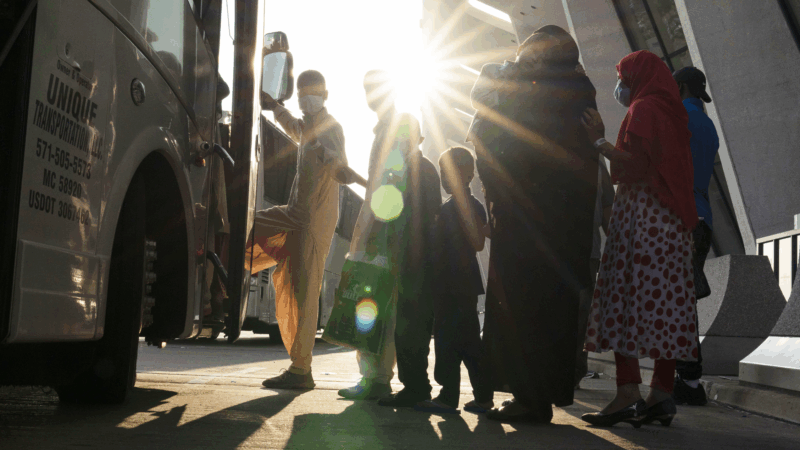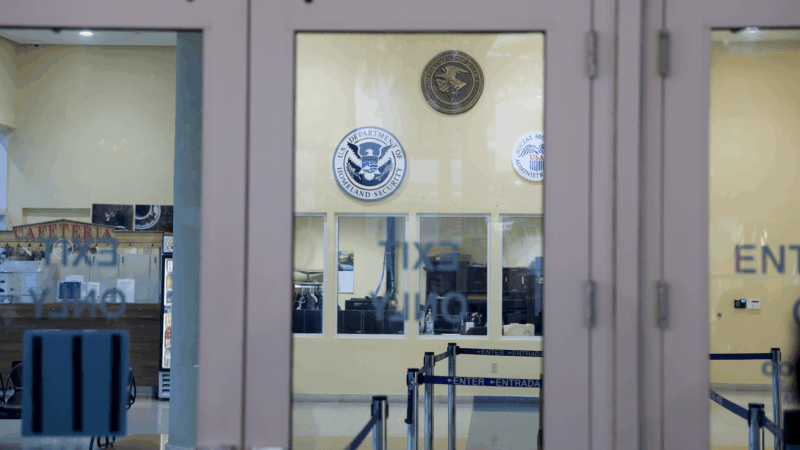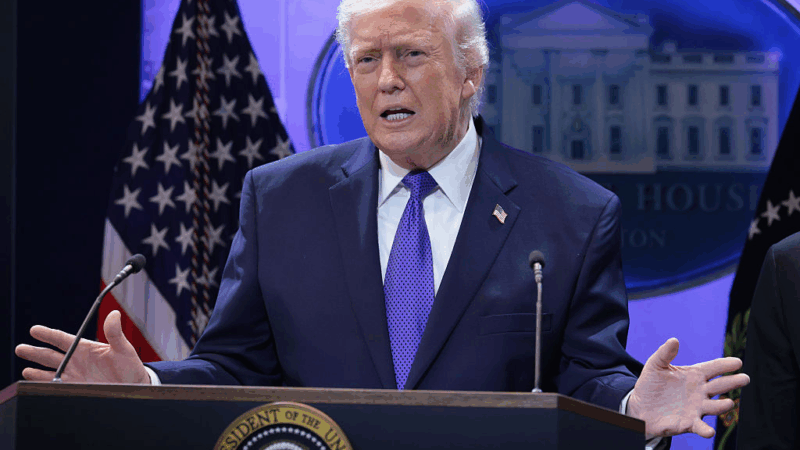White House welcomes Afrikaners to the U.S., but drops protection for Afghan allies
As many as 9,000 Afghan refugees are at risk of deportation, as the Trump administration has ended the temporary protected status (TPS) that allowed them to stay in the U.S. legally. The White House says their country is no longer dangerous for them, a contention that confounds Afghanistan watchers.
“It’s a death penalty for them if they return,” said Zia Ghafoori, who worked as an interpreter in combat with U.S. Army Special Forces from 2002 to 2014.
Ghafoori was received by President Trump at the White House in 2019 and became a U.S. citizen in 2020.
“He’s a big supporter of our veterans and that’s what we love about the president,” Ghafoori said. “Maybe he’s not aware how the policy is going to affect our Afghan allies. I don’t know what’s happening behind the scenes.”
“I hope we can keep those promises that we made,” he added. “But unfortunately, right now I don’t know how to explain that to the families that are here and living in stress and depression without any immigration status.”
Ghafoori says the move also affects thousands of Afghans in limbo, including 13 members of his own family that had been set to fly to the U.S. from Pakistan when the Trump administration canceled flights for Afghans earlier this year.
Ending TPS for Afghans is part of the administration’s stated goal of realigning the United States refugee admissions program.
“This administration is returning TPS to its original temporary intent,” said Homeland Security Secretary Kristi Noem in a statement on Monday.
“We’ve reviewed the conditions in Afghanistan with our interagency partners, and they do not meet the requirements for a TPS designation. Afghanistan has had an improved security situation, and its stabilizing economy no longer prevent them from returning to their home country,” she said.
Not forgotten
A chorus of dissenting voices has condemned the change as a betrayal to those who helped the U.S. at war or were stranded by the abrupt withdrawal from Afghanistan in 2001.
“To our Afghan allies, you are not alone, you are not forgotten,” said Jack McCain, a veteran of the Afghan war and son of the late Sen. John McCain.
“Allies here in the United States who fought alongside people like me … who risked their lives and the lives of their families to execute our foreign policy are at the very real credible risk of deportation and in many many cases, death,” said McCain in a statement on social media.
Bill Frelick with Human Rights Watch called the move to revoke the status for Afghans “a betrayal of U.S. commitments.”
“The only justification for revoking temporary protection would be if permanent protection was being offered since Taliban rule clearly makes returns unsafe,” he said.
As for Noem’s assertion that the country is now safe, it left advocates wondering where the DHS is getting its information.
“I wonder if Secretary Noem is operating on the assumption that the Taliban has given promises that they’re not going to put people that worked with the U.S. in harm’s way?” said Morwari Zafar, with the Georgetown University Center for Security Studies.
“Even if that were true, even if we could trust their word, it’s not just the Taliban. You’ve got an environment where there are hostilities towards the population that would be coming back just based on the fact that they worked with the U.S. military – and also that they were the ones that got out,” she said.
Veterans of the post-9/11 wars are among the most passionate advocates for protecting Afghans status. Many had taken encouragement that two of Trump’s cabinet picks were staunch supporters of TPS for Afghans. Secretary of State Marco Rubio was one; he’s recently gone quiet on the issue. Former National Security Adviser and Afghanistan war vet Mike Waltz was the other, and he appears to have been marginalized.
Some Republicans who condemned the Biden administration’s ending of the Afghan war are now criticizing Trump.
“The Biden administration’s withdrawal from Afghanistan was a catastrophe. Deporting Afghans who bravely helped us would be Trump’s catastrophe,” said Bradley Bowman with the Foundation for Defense of Democracies. Bowman is an Afghanistan vet who also taught at West Point. He called deporting Afghan allies immoral but also short-sighted from an American national security standpoint.
“Around the world, countries are looking at the actions of the United States to determine whether Washington is a good partner that honors its commitments and stands by its friends,” he said. “If we deport such individuals, the consequences for those Afghans and their families may be severe and the decision will rightly be viewed as a betrayal.”
The immigration advocacy group CASA announced it has sued the Trump administration over its termination of TPS for Afghans and also Cameroonians. That action came at the same time the Trump administration made good on a promise to accept white South Africans into the U.S., citing what Trump baselessly claimed was a racial genocide against them.
Democratic Rep. Seth Moulton of Massachusetts, a Marine combat veteran, said the contrast was stark.
“As every Iraq or Afghanistan veteran knows, this is textbook betrayal. To say that the conditions in Afghanistan have improved as our allies are being hunted down is clearly absurd,” he said in a statement to NPR. “I know Kristi Noem doesn’t understand the idea of risking your life for our country, but perhaps she understands outright racism in accepting Afrikaner ‘refugees’ in their place,” he said in a statement to NPR.
What NPR reporters will remember most about these Winter Olympics
NPR's reporters on the ground in Italy reflect on a far-flung, jam-packed Winter Olympics.
In the shadow of the Olympics, migrants search for a welcome in Milan
As Italy cracks down on migration, Milan takes a different path — offering shelter and integration to asylum seekers even as the central government tightens borders and funds deterrence abroad.
Trump to raise global tariffs. And, most say the state of the union is weak, poll says
President Trump says he is raising global tariffs to 15%. And ahead of the president's address tomorrow, most Americans say the state of the union is not strong, according to an NPR poll.
U.S. has a quarter fewer immigration judges than it did a year ago. Here’s why
The continued drain of personnel from the already strained immigration court system has contributed to depleted staff morale, mounting case backlogs — and floundering due process.
Poll: Most say the state of the union is not strong and the U.S. is worse off
Ahead of the State of the Union address on Tuesday, evidence continues to mount that President Trump is facing political headwinds.
Influencers are promoting peptides for better health. What’s the science say?
The latest wellness craze involves injecting these molecules for athletic performance, longevity and more. Scientists say the research isn't keeping pace with the health claims.







